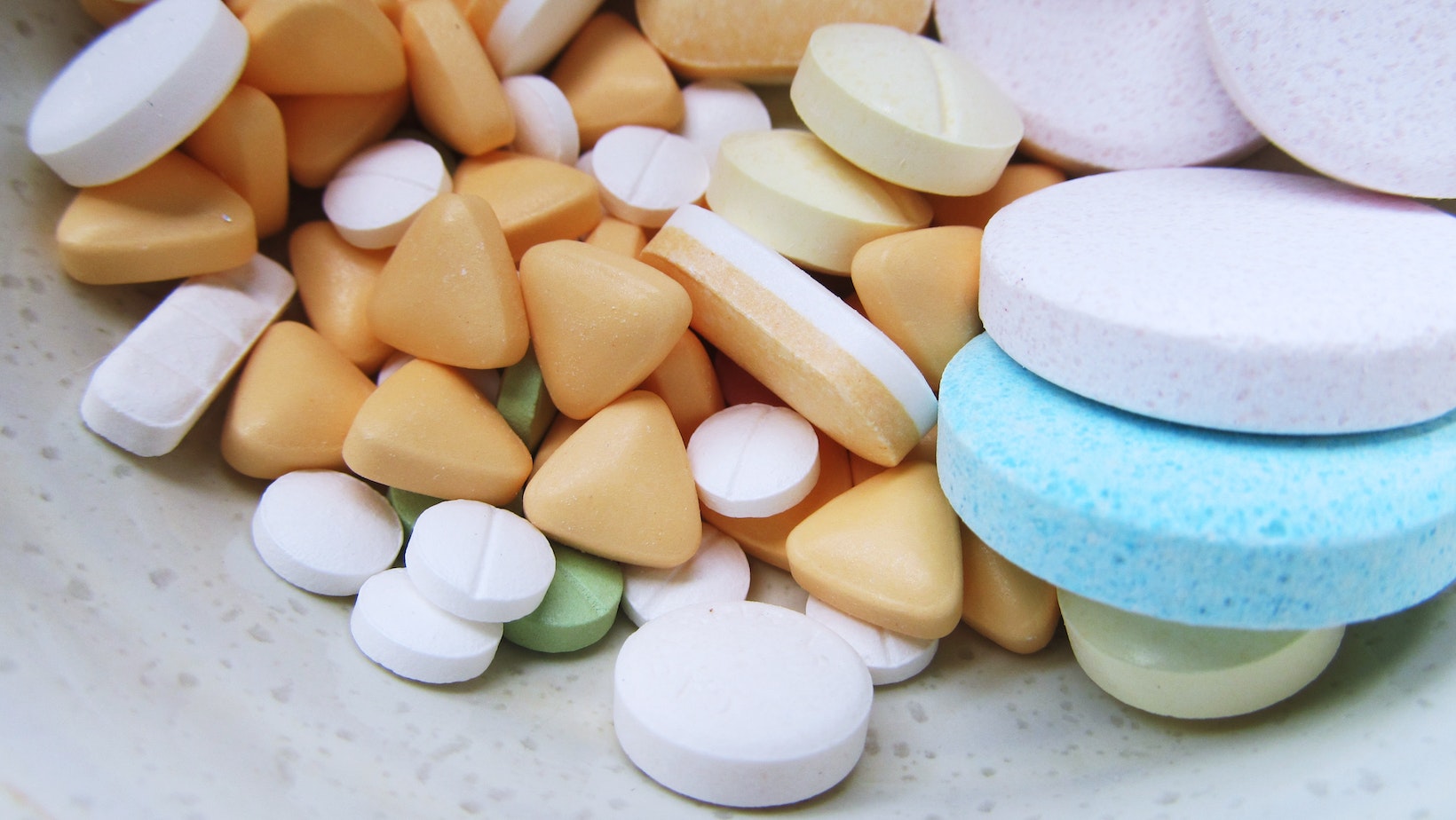
Are you suffering from bloating and looking for a natural remedy? Probiotics may be the answer. You may have tried other treatments that don’t seem to work. Well, this article is here to help you find relief with probiotics.
Discover how they can alleviate your digestive woes and give your gut the support it needs.
Introduction to Probiotics
Probiotics are a type of beneficial bacteria that provide numerous health benefits, including improving gut health, boosting the immune system, and reducing bloating. Bloating can be caused by a variety of factors, including poor diet, stress, and certain medical conditions. Incorporating probiotics into your diet through supplements or fermented foods like yogurt or kefir can help regulate the balance of bacteria in your gut and reduce bloating and discomfort.
While probiotics can be effective in reducing bloating, it’s important to note that not all types or strains of probiotics are created equal. Different strains of bacteria may have different effects on the gut and overall health, and some people may experience side effects like gas or bloating when first introducing probiotics into their diet.
It’s also important to maintain a healthy diet and lifestyle to support overall gut health and reduce symptoms of bloating. Pro tip: Start with a small daily dose of probiotics and gradually increase as tolerated, and choose a probiotic supplement with a variety of bacterial strains for optimal benefits.

What is Bloating?
Bloating is a common condition that occurs when the digestive system is filled with excess gas or air. Symptoms of bloating include abdominal discomfort, tightness, and a swollen or distended belly. While probiotics have not been scientifically proven to cure bloating, they can help alleviate its symptoms and improve gut health.
Probiotics work by promoting the growth of healthy gut bacteria, reducing inflammation, and preventing the overgrowth of harmful bacteria that can cause digestive problems. Consuming probiotics in food or supplement form has been shown to reduce bloating and improve digestion in some individuals.
Nevertheless, it is important to note that the effectiveness of probiotics may vary depending on the specific strain and dosage, and the underlying cause of bloating. Consult with your healthcare provider before starting any new probiotic regimen or treatment plan for bloating.
Pro tip: Incorporate probiotic-rich foods such as yogurt, kefir, sauerkraut, or kimchi into your diet to promote healthy gut flora and reduce bloating.
The Link Between Probiotics and Bloating
Probiotics are live microorganisms that can have various health benefits, including reducing bloating and improving gut health. Several studies have shown that taking probiotics supplements may alleviate bloating and other digestive issues, such as constipation and diarrhea.
There are three main ways that probiotics can help with bloating:
|
1. |
Reducing gas production: Probiotics can help break down undigested food, reducing the amount of gas produced in the gut, which can cause bloating. |
|
2. |
Balancing gut bacteria: Probiotics can help balance the levels of good and bad bacteria in the gut, promoting better digestion and reducing bloating. |
|
3. |
Reducing inflammation: Probiotics produce compounds that can reduce inflammation in the gut, which can help alleviate bloating and other digestive issues. |
However, the effectiveness of probiotics in reducing bloating can vary depending on the individual’s gut microbiome, the type of strain used, and the dosage. It’s always best to consult a healthcare professional before taking probiotics for digestive issues.
Types of Probiotics
Probiotics are live bacteria and yeasts that can provide various health benefits when consumed in sufficient quantities. There are several types of probiotics, each with its unique functionality.
|
Lactobacillus: |
The most common type of probiotic, lactobacillus, is commonly found in fermented foods like yogurt and sauerkraut. This probiotic aids in the digestion of lactose and helps improve immune function. Lactobacillus can help reduce bloating and flatulence in people who are lactose intolerant. |
|
Bifidobacterium: |
Another prevalent type of probiotic, bifidobacterium, is present in many dairy products, including milk and cheese. This probiotic helps regulate bowel movements and can alleviate symptoms of irritable bowel syndrome (IBS). |
|
Saccharomyces boulardii: |
This beneficial yeast found in the intestinal tract can help combat diarrhea and other digestive issues caused by harmful bacteria. |
|
Streptococcus thermophilus: |
This probiotic strain is found in many types of yogurt and can help improve lactose digestion and boost immune system function. |
While probiotics can help alleviate bloating, it’s essential to consume them regularly in adequate amounts to maintain optimal gut health.
Does Probiotics Help with Bloating
Yes, probiotics can alleviate bloating by restoring the natural balance of gut bacteria.
Here are the benefits of probiotics for bloating:
|
Probiotics improve digestive function and regulate bowel movements, which can reduce bloating and constipation. |
|
Probiotics promote the production of enzymes that break down food, allowing for better absorption of nutrients and reduced gas. |
|
Probiotics reduce inflammation and prevent harmful bacteria from growing in the gut, which can decrease bloating in people with inflammatory bowel diseases. |
|
Probiotics can help to de-stress the gut and reduce anxiety, which can be a contributing factor to bloating and digestive discomfort. |
To experience the benefits of probiotics for bloating, choose a high-quality probiotic supplement or consume probiotics through fermented foods like yogurt, kefir, and sauerkraut. Pro tip: Consult a healthcare professional to determine the right probiotic supplement or fermented foods suitable for your health.

How to Take Probiotics for Bloating
Probiotics are beneficial bacteria that live in your gut and help with digestion. These beneficial bacteria can be an effective solution for bloating, as they regulate the natural balance of bacteria in your gut.
Here’s how to take probiotics for bloating:
|
Choose a high-quality probiotic supplement that contains strains of bacteria that are proven to aid in digestion and intestinal health. |
|
Take the recommended dosage of the supplement with a meal or as directed by your healthcare provider. |
|
Consume probiotic-rich foods such as yogurt, kefir, sauerkraut, and miso to supplement the effects of the probiotic supplement. |
|
Maintain a healthy and balanced diet to promote the growth and effectiveness of the probiotics in your gut. Probiotics can improve bloating symptoms, but it is essential to manage your diet and overall health for long-term relief. |
Potential Side Effects of Probiotics
Probiotics do help with bloating, but there are potential side effects that you should be aware of before adding probiotics to your diet.
Here are some common side effects of probiotics:
|
1. Digestive issues: |
Some people experience digestive discomfort, such as gas, bloating, and diarrhea when they start taking probiotics. These symptoms usually disappear after a few days. |
|
2. Allergic reactions: |
If you have a history of allergies or are allergic to any of the ingredients in the probiotics supplement, you may experience an allergic reaction such as itching, hives, or difficulty breathing. |
|
3. Infection risk: |
Probiotics are live bacteria that can be harmful to people with weakened immune systems, such as those receiving chemotherapy or people with HIV/AIDS. These individuals should consult a healthcare provider before taking probiotics. |
|
4. Interference with medication: |
Probiotics can interact with certain medications, such as antibiotics and immunosuppressants. Speak with your healthcare provider before adding a probiotics supplement to your diet if you are taking any medication. |
Probiotics can help with bloating, but it’s essential to be aware of the potential side effects and speak with your healthcare provider before adding them to your diet.
![]() Conclusion
Conclusion
In conclusion, probiotics can be an effective way to alleviate bloating symptoms caused by gut dysbiosis or an imbalance of gut bacteria. Several studies have shown that probiotics can improve gas transit time and reduce abdominal distension in people with bloating.
However, not all probiotic strains are created equal, and the effectiveness of the treatment may depend on the individual’s gut microbiome makeup and the specific strain of probiotic consumed. It is recommended to consult a healthcare provider before starting any probiotic supplement to ensure it’s the right choice for you.
Additionally, it’s important to note that probiotics are not a magic cure for bloating and other digestive issues, and lifestyle factors such as a healthy diet, regular exercise, and stress management may also play a crucial role.
Pro tip: Incorporating a variety of probiotic-rich foods like yogurt, kimchi, and kefir into your diet may provide similar benefits to taking probiotic supplements.
